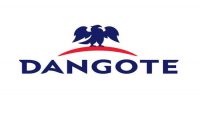The Federal Executive Council, Wednesday approved the Full Business Case Compliance Certificates for National Public Security Communications project and the Ibom Deep Seaport project. This was part of decisions reached at its weekly meeting which held on Wednesday at the Council Chamber, Presidential Villa, Abuja.
With this development, the stage is set for contract signing and implementation with respect to both project through Public Private Partnership driven by the Infrastructure Concession Regulatory Commission (ICRC).
The National Public Security Communications Project (NPSCP) is a Public Private Partnership (PPP) between the Ministry of Police Affairs and MPS Technologies Limited, a Special Purpose Vehicle incorporated by Mobitel Limited to manage the Concession. This follows the satisfaction of the conditions prescribed in the ICRC Act, 2005 and the National Policy on Public Private Partnership. The Project premised on a Finance, Build, Operate and Transfer arrangement, will combine the network’s 450MHz spectrum with MPS’s 2300Mhz (2.3GHz) spectrum among other assets.
The concession will result in an initial investment of Thirty-Seven Billion, Four Hundred Million (N37,400,000) Naira and an additional Sixty-Six Billion, Nine Hundred Million (N66,900,000) Naira in capex investment in the nation’s economy over the 30-year span. When the project takes off, it will deliver enhanced security and communication services for the Nigerian Police Force, related agencies and commercial telecommunication entities. The project is a potential game changer in the fight against insurgency and other forms of crime across the country including the enhancement of the capacity of state divisions of the Nigeria Police. This is in addition to the creation of over 8000 direct jobs for Nigerians.
Among the many service offerings of the project include the provision of CCTV to aid surveillance, E-Policing subsystem, Video Surveillance Subsystem, and Coalition Emergency Response Subsystem. A good number of agencies stand to benefit from this novel project in enhancing their operations apart from the Nigerian Police Force. They include the Nigerian Correctional Service, Nigeria Customs Service, National Drug law Enforcement Agency, Federal Road Safety Commission, Federal Fire Service among others.
The Ibom Deep Seaport on the other hand, is a greenfield port development integrated within the Ibom Industrial City (IIC) Free Zone development. Located in the South East of Akwa Ibom, its concession was granted to Bolloré-Africa PCI Consortium in line with the guidelines set out in the ICRC Act, 2005 and the National Policy on Public Private Partnership for a 50-year period. The project, which is to be developed using the Design- Finance-Build-Operate and Transfer (DFBOT) methodology, would lead to the injection of Two Billion and Sixteen Million, One Hundred and Ninety Eight Thousand Dollars ($2,016,198) into the nation’s economy, with Phase 1A estimated to cost One Billion, Three Hundred and Thirty Six Million, Eight Hundred and Seventy Eight Dollars ($1,336,878) while Phase1B is in the region of Six Hundred and Seventy Nine Million, Three Hundred and Twenty Two ($679,322).
The Port facility would become the Eastern Gateway of Nigeria, providing vital port capacity for the country. The project is jointly owned by the Federal Government, Akwa Ibom state Government and private investors will serve to augment Nigeria’s existing port capacity, but also, more importantly, accelerate industrialization and general economic activity in the South region.
A key benefit of this will be the reduction of youth restiveness in the Niger Delta through the creation of thousands of new jobs for the youths. Additionally, the Ibom Deep Sea Port will serve the South, South East and North Central regions by providing an alternative route to the otherwise land locked North East region, providing access to regional and international trade.
It is projected to provide the much-needed container handling and storage capacity, import capacity for petroleum products, provide import capacity for vehicles and provide dedicated import capacity for food and agricultural products. It would also provide dedicated export capacity for industrial output and natural resources and be a logistics base and regional trading hub in West Africa.
Manji Yarling
Ag. Head, Media & Publicity



